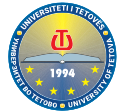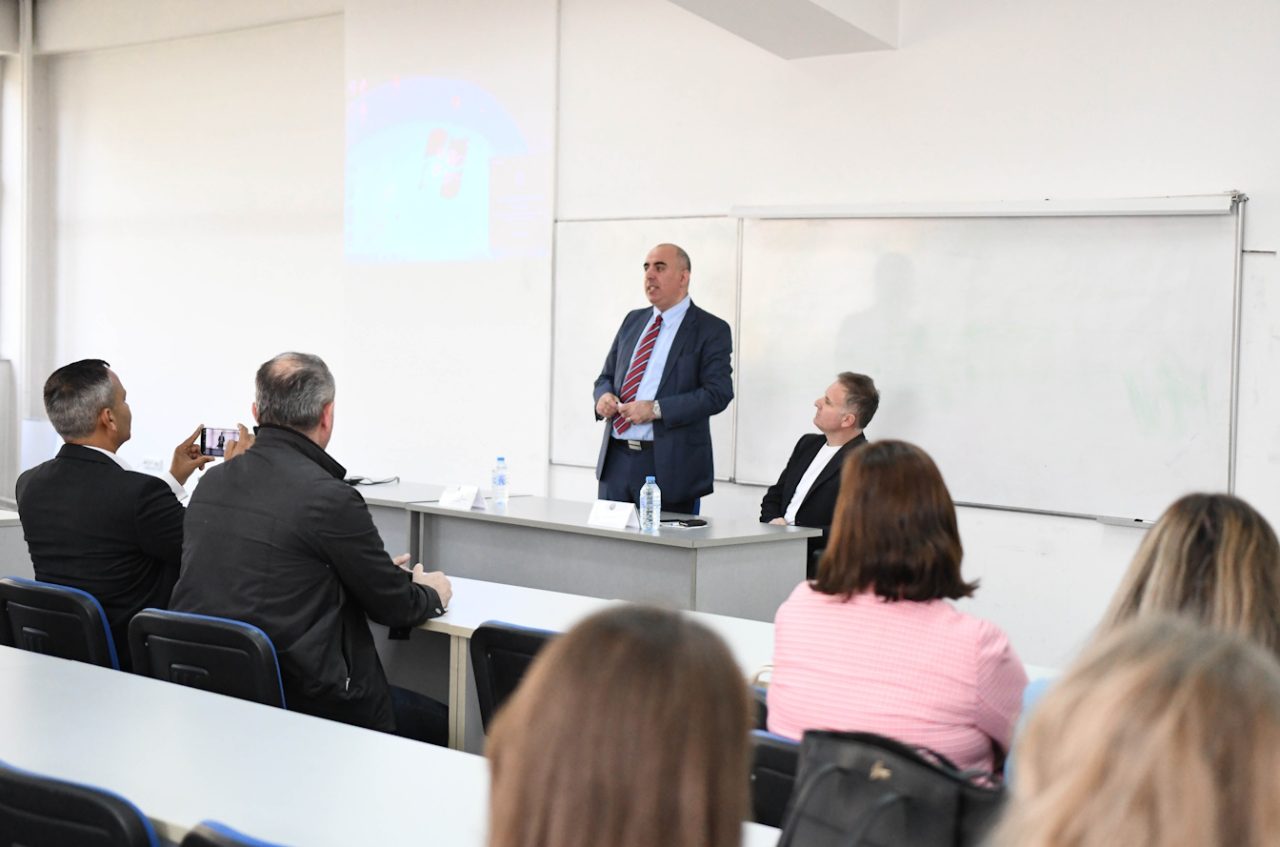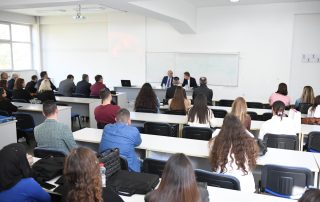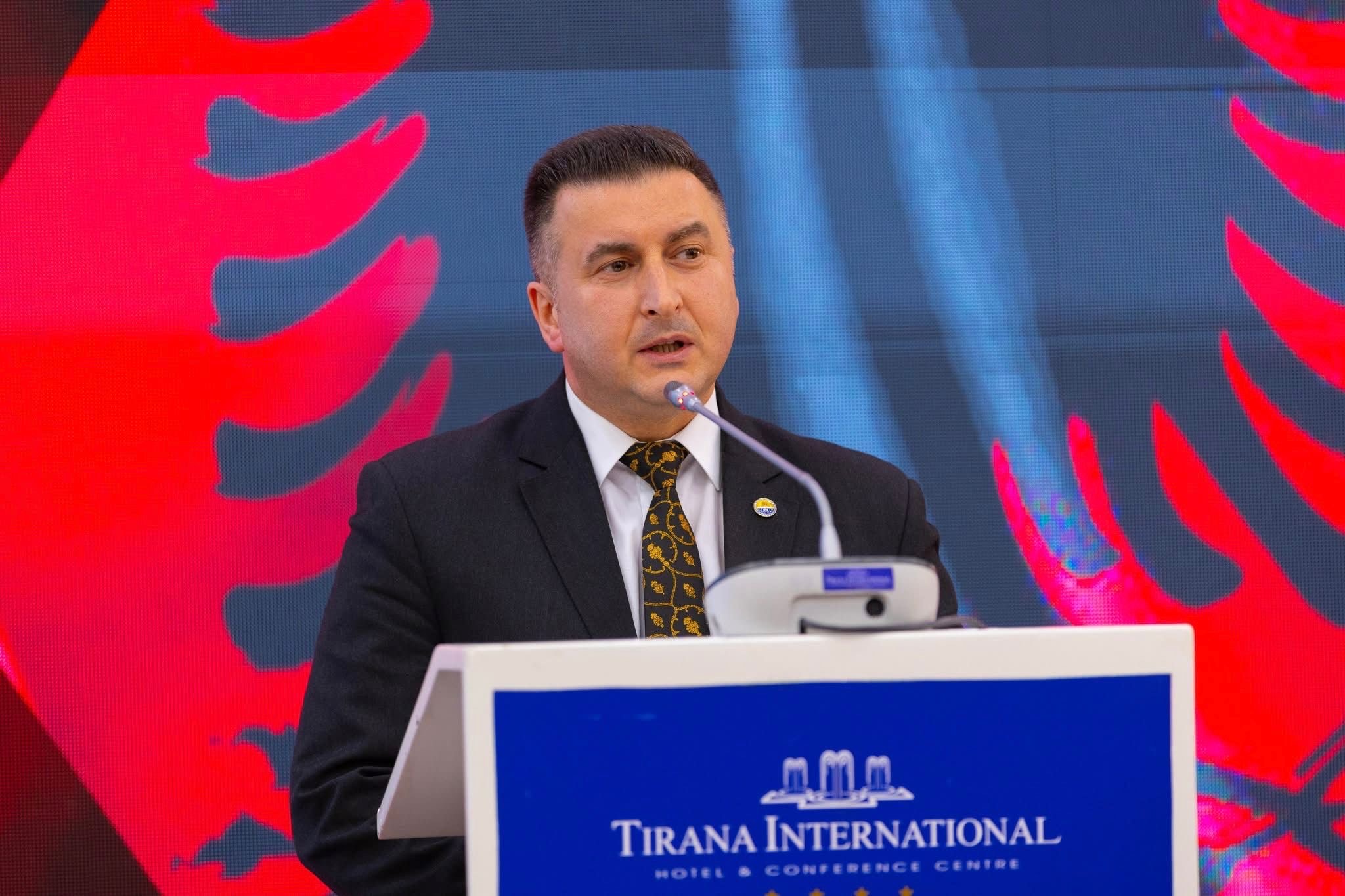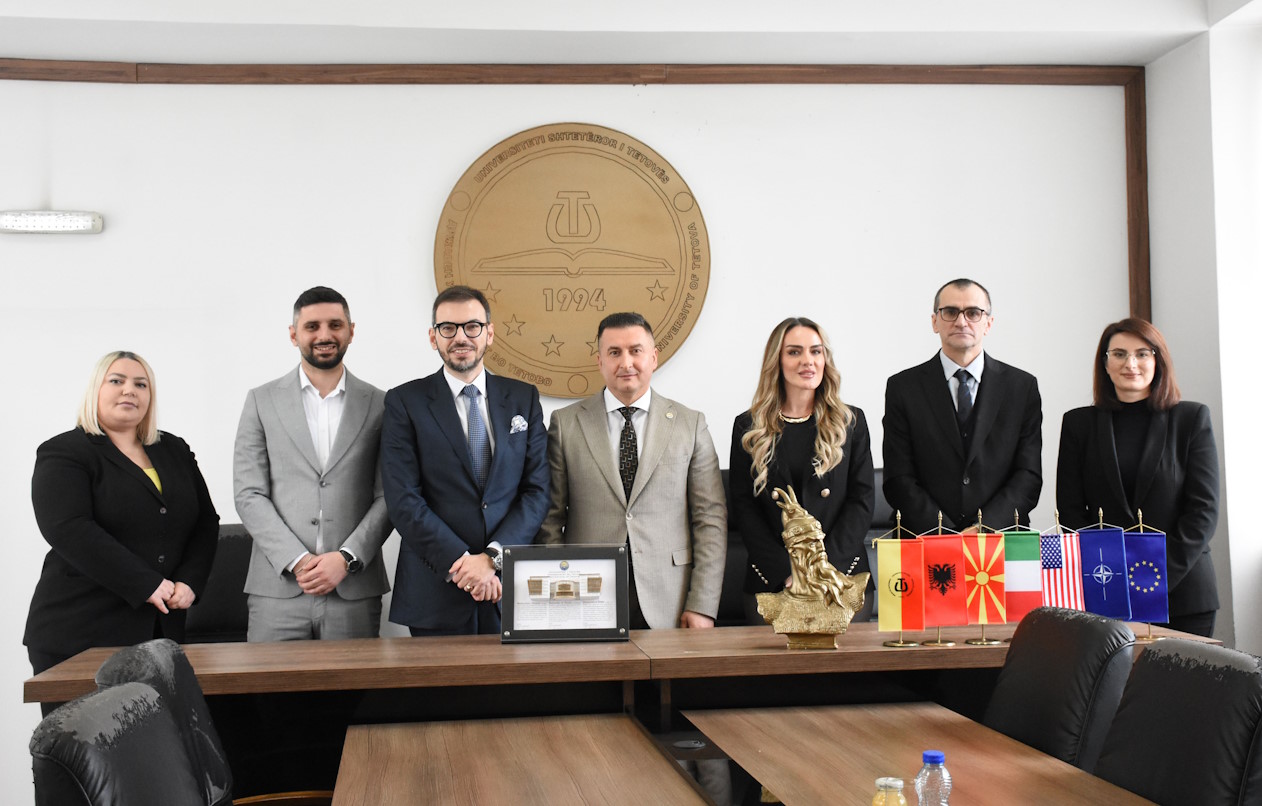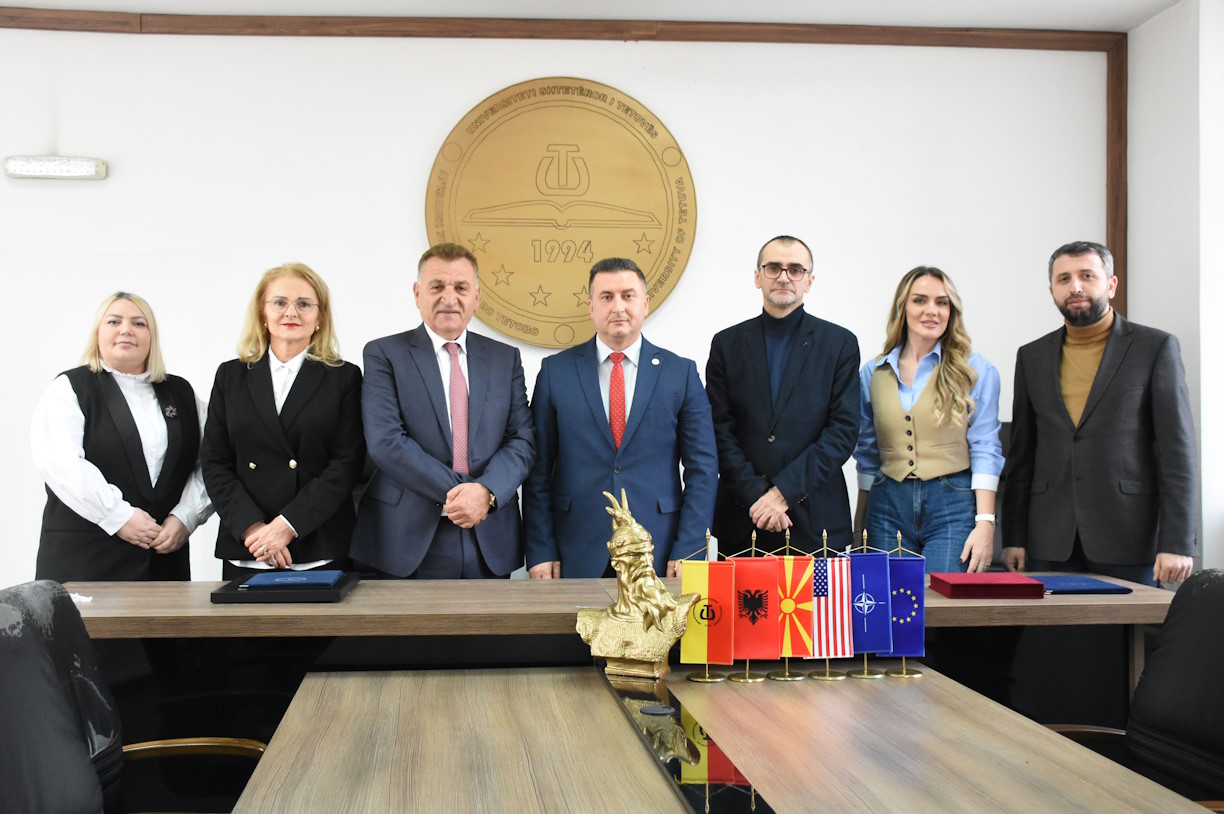In the amphitheater of the Faculty of Philology of the University of Tetova, the administrator of the Department of Comparative Literature of Harvard University in the US, Faton Limani, today held an open lecture dedicated to “Albanian language in Harvard University”. The event was attended by the Vice-Rector for International Relations, Prof. Dr. Salajdin Salihu, Dean of the Faculty of Philology, Prof. Dr. Berton Sulejmani, deans, professors and students.
Dean of the Faculty of Philology, Prof. Dr. Berton Sulejmani in his speech said that Albanian studies in the US have provided a valuable aid to the knowledge of the Albanian world, have enriched knowledge and nurtured the friendship between the two peoples. “American Albanianists have posed fundamental issues in Albanian language studies. The great experience in the description of languages, the techniques and methods developed for field research, have led them to give weighty works, such as the descriptions of Eric P. Hamp, o Leonard Newmark, Gary L. Bevington, for the generative phonology of Albanian, Victor Friedman for morphosyntax, Brian Joseph, for the first infinitive and in the Balkan context, Janet Byron, for the standardization of Albanian, Lukas Tsitsipiis, for the sociolinguistic state of Arbërisht of Greece, Philip Hubbard, for the verbal system, Matt Curtis, for the relations of Albanian with Slavic languages, Stavro Skëndi, for metric and epic or for cultural history, Arshi Pipa, for Albanian and Italian literature, Peter Prifti, for the newest history, Nikola Panos, also for the new history, Bernd Fischer, for the history of the Second World War and for the Zog period, of the youngest in various fields”- said the Dean of the Faculty of Philology, Prof. Dr. Berton Sulejmani.
The administrator of the Department of Comparative Literature of Harvard University in the US, Faton Limani, developed his lecture in the form of a conversation with students, where several different points were discussed, but it was mainly based on leadership and the opportunities students have to continue their educational-scientific journey in the USA.
